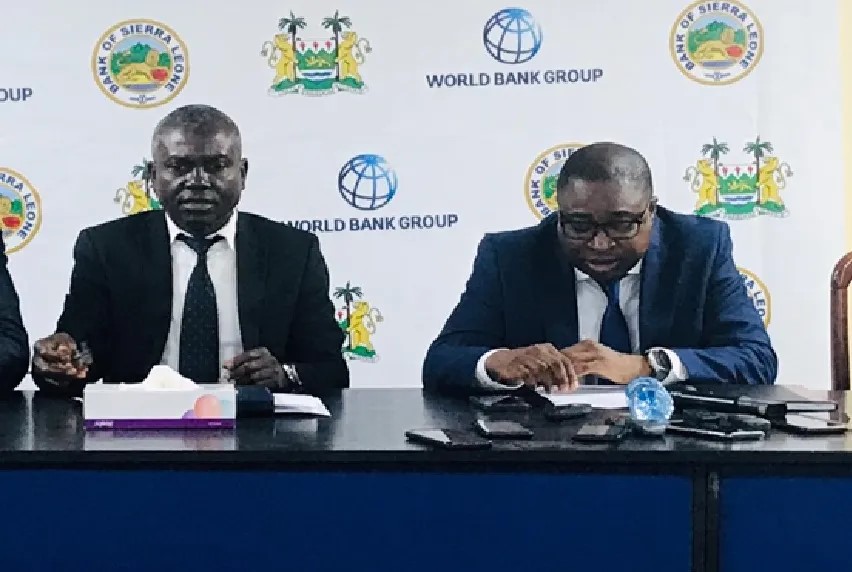BY MARILYN KING (232news.com)
The Bank of Sierra Leone has trained Journalists across the country about the ‘Salon Pement Swich’, on 8th June, 2023. The Salon Pement Swich, is part of the Sierra Leone Financial Inclusion Project, which aims to make banking very easy and comfortable for customers. The training was held at the Sam Bangura Building Auditorium, in Freetown.
The National Switch of Sierra Leone is being executed under the Sierra Leone Financial Inclusion Project which the Government of Sierra Leone is implementing through a loan from IDA/World Bank. The Project intends to increase the interoperability of digital payments and access to financial services.
The National Switch is expected to play a critical role in the socio-economic development of the country through promotion of digital financial services.
The process is further expected to drive volume, customer needs and overall national interest in the uptake of digital financial sector.
The Acting Bank Governor intimated that the more Journalists are educated about the Pement Swich, the better they will be able to sensitize the public. Maintaining how they need to sensitize the public about the importance of the Swich, the acting Bank Governor had this to say; ‘’The implementation of this strategy is therefore essential to increase visibility, public awareness and status of the switch among members of the general public and other key stakeholders in order to maintain stakeholders’ confidence in the switch platform and financial sector.’’ He noted.
‘’The fundamental purpose of the Salon Pement Swich is to increase financial inclusion. Our second financial project will start in August this year, and it will complement this one. ‘’ He stated.
Alfred Samah, Director, Banking Department, during his presentation said that, the Switch comprises of three components, firstly to ensure interoperability of digital payments, finances the hardware, software, and consulting services required to implement a switch successfully.
He maintained that, the other component is to ensure the viability of the payments system through increasing usage thereof by financing access points for the switch, including Point of Sale (POS) terminals, mobile wallets, and government payments with particular emphasis on rural areas.
According to him, the third component is to ensure support for project implementation by financing a project coordinator and oversight mechanisms for the project to ensure private sector stakeholder involvement.
The Salon Pement Swich (SaPS) comprises three service lines that will be progressively introduced and the first line is a Card Switch where SaPS connects all card-issuing banks with all domestic local card to be used in any local device.
The second line, he pointed out is an Instant Payment Platform, where SaPS connects bank and mobile operators together to allow instant payments across all bank accounts and mobile money wallets.
The third line is a Hosting Service, allowing smaller financial institutions to issue cards and deploy ATMs and POS devices, and connect to the card switch, at low cost.
Albert Boima, Assistant Switch Division, in his presentation noted that, the benefits of the SaPS customers can use the nearest ATM, not just their own bank’s ATM, continuing that, this will also reduce travel and other costs, greater convenience.
He furthered that, banks can issue more cards to more customers; and how they can earn extra revenue from deploying ATMs.
Boima stated that, with the SaPS there will be lower payment system costs, increased trade and commerce, and greater financial inclusion in the country.

